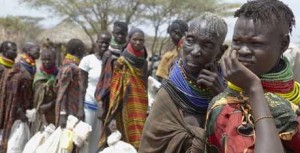
Diederik van der Hoeven appears to appreciate our moral position, but questions the practicality. But it is the practical consequences of the EU’s biofuel policy that prompted us to take a more radical stance on the current blending volumes. So I would like to share some more insight in our activities.
Earlier columns on the food/fuel problem appeared on 14 November, 16 November, 18 November, and 20 November.
Oxfam Novib track record on sustanable bioenergy
The latest response by Diederik van der Hoeven misses the point about what Oxfam Novib has been doing to promote the sustainable development of bioenergy. In 2006, we joined the Cramer Committee to develop a comprehensive set of sustainability criteria. I still consider this result a milestone, if only because all parties that started this process stayed there until the end. The so-called Cramer criteria have found their way into international processes such as the Roundtable of Sustainable Biofuels. We are also actively engaged in the development of an ISO standard on sustainable bio-energy, a process that involves over fifty countries from all over the world to come to global understanding of criteria and indicators for sustainable bio-energy. You do not have to take my word for it, just approach the chairs of the secretariat of this process, Arnaldo Walter from Brazil and Hans Nordstrom from Sweden if there are doubts about my personal commitment to invest in this common understanding (hans.nordstrom@live.se, awalter@fem.unicamp.br).
Large volumes at the lowest possible price
And beyond that, Oxfam Novib participates actively in multistakeholder initiatives on products such as palm oil, cocoa and aquaculture. The majority of our work deals with the improvement of agricultural practices, for bio-energy and beyond. But here is the problem. Scenarios about idle lands, waste and rest materials are nothing more than hypothetical. A research paper that we will publish on Monday, 26 November concludes clearly that the economic and political drivers behind large volumes of biofuels are towards the production of biomass for energy in developing countries. Our current policy simply is not directed towards the use of idle lands that Diederik is referring to, but is aimed to produce large volumes at the lowest possible price.
Oxfam Novib campaign is triggered by practical effects
If Kenyan or Philippine farmers lose their land because we need their land for our fuel hunger, hypothetical stories that we could have done the same in Europe offer little comfort. And our current campaign is triggered by these practical effects. Just one look at the responses from the biodiesel and bio-ethanol producers on the proposals from the European Commission to cap the use of food based biofuels proves the point. The only way that the biofuel industry can comply with the blending targets of the EU is to produce first generation biofuels, without any specific criteria on food security or the use of idle lands.
It would be naive if Oxfam Novib would just continue the debate on sustainable bioenergy if the market completely ignores this debate. Only if there is a commitment to separate the good from the bad biofuels, we have a chance in putting criteria into practice, such as we have developed in the Cramer Committee.
